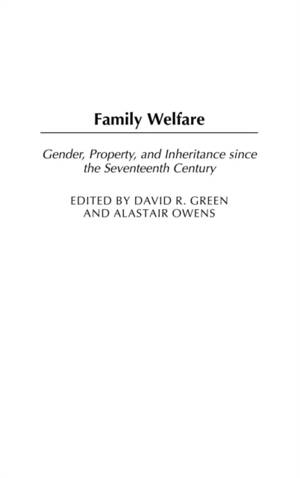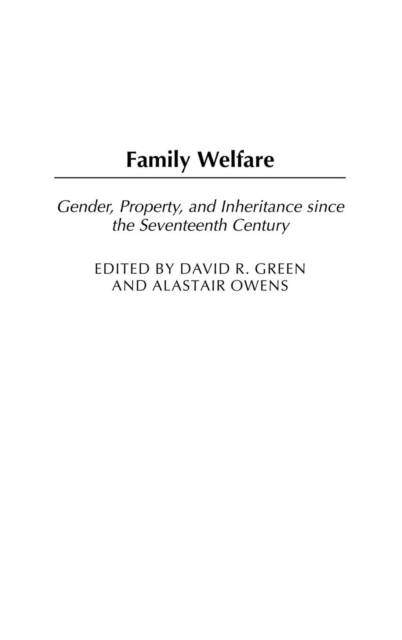
- Afhalen na 1 uur in een winkel met voorraad
- Gratis thuislevering in België vanaf € 30
- Ruim aanbod met 7 miljoen producten
- Afhalen na 1 uur in een winkel met voorraad
- Gratis thuislevering in België vanaf € 30
- Ruim aanbod met 7 miljoen producten
Zoeken
Family Welfare
Gender, Property, and Inheritance Since the Seventeenth Century
€ 127,45
+ 254 punten
Omschrijving
The history of welfare provision has generally focused on the rise of the so-called welfare state and institutional provision for the poor. Recent studies have begun to look beyond the state to other ways in which assistance, care, and support were provided in the past, but the focus remains primarily on the poor. This work widens our understanding of welfare by focusing not on the poor but on those who have some wealth. It draws attention to the importance of family as part of a mixed economy of welfare provision that also incorporates the state, the market, and the voluntary sector.
This book offers an exciting new approach to the history of welfare by focusing attention on the complex range of sources of support drawn on to meet family needs. The chapters highlight the significance of the family as a link in in the provision of assistance. They also focus on the role played by gender relations in shaping welfare strategies. An extensive introduction is followed by ten chapters presenting detailed studies of the provision of family welfare across western Europe and the United States over the past four hundred years.Specificaties
Betrokkenen
- Uitgeverij:
Inhoud
- Aantal bladzijden:
- 306
- Taal:
- Engels
- Reeks:
- Reeksnummer:
- nr. 18
Eigenschappen
- Productcode (EAN):
- 9780313323287
- Verschijningsdatum:
- 30/06/2004
- Uitvoering:
- Hardcover
- Formaat:
- Genaaid
- Afmetingen:
- 157 mm x 236 mm
- Gewicht:
- 635 g

Alleen bij Standaard Boekhandel
+ 254 punten op je klantenkaart van Standaard Boekhandel
Beoordelingen
We publiceren alleen reviews die voldoen aan de voorwaarden voor reviews. Bekijk onze voorwaarden voor reviews.










